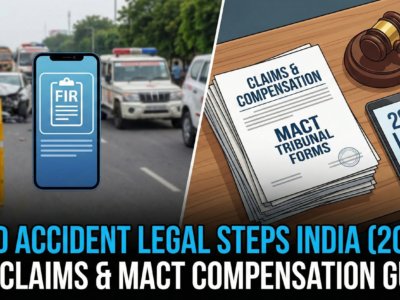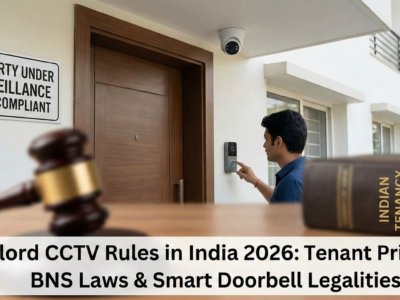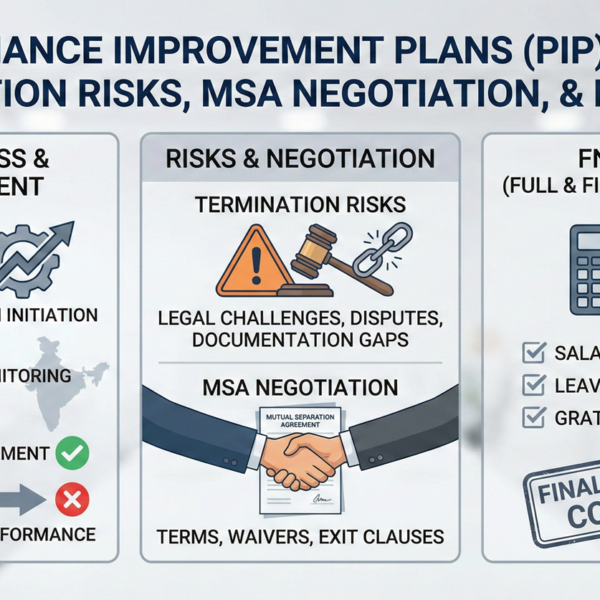Adopting from India: A Foreigner’s Guide | CARA Process 2025
Thinking of adopting a child from India as a foreigner? The journey, while deeply rewarding, involves a complex legal process that can feel overwhelming. This comprehensive guide is your up-to-date roadmap to navigating India’s intercountry adoption system. We’ll break down everything from the crucial eligibility criteria set by CARA to the detailed step-by-step process, expected costs, and critical timelines, including the latest updates on the CARINGS portal. Let’s begin your path to building a family.
Adopting a Child from India: A Foreigner's Comprehensive Guide
Your complete legal and procedural roadmap for intercountry adoption.
Updated for September 2025.
Understanding the Legal Framework
India's adoption system is robust and centralized, with key players and laws governing every step. Here's who and what you need to know.
CARA: The Central Authority
The Central Adoption Resource Authority (CARA) is the sole nodal body regulating all adoptions in India. It manages the entire process through its online portal, issues key approvals, and ensures compliance with international standards.
The Juvenile Justice Act, 2015
This is the primary secular law governing adoptions. A 2021 amendment shifted the power to issue adoption orders from courts to District Magistrates (DMs), making dossier perfection more critical than ever.
The Hague Convention
As a signatory, India adheres to this international treaty's safeguards, ensuring ethical, transparent, and legally recognized adoptions across borders. This provides legal certainty for adoptive parents.
IMPORTANT: CARINGS Portal Service Suspension
Please be advised that CARA's online CARINGS portal has temporarily suspended Child Matching, Acceptance, Reserve, and Referral services until September 30, 2025. Services are expected to resume on October 1, 2025. This creates a mandatory "preparation phase" for new applicants.
Are You Eligible to Adopt?
CARA has strict, non-negotiable criteria for Prospective Adoptive Parents (PAPs). Use our interactive tool below to check if you meet the key age requirements.
Interactive Eligibility Calculator
Marital Status
Married couples must have at least 2 years of stable marriage. Single females can adopt any gender, single males cannot adopt a girl.
Health
PAPs must be physically, mentally, and emotionally stable with no life-threatening medical conditions.
Financial Stability
Must be financially capable of raising a child, proven through income documentation.
Existing Children
Families with 3 or more children are generally not eligible, unless adopting a special needs child.
Your Step-by-Step Adoption Journey
The process is sequential and highly regulated. Follow these steps carefully to navigate your path to adoption.
Engage an Authorised Agency (AFAA)
Your first and most critical step. Select a CARA-authorized agency in your country to guide you, prepare your Home Study Report (HSR), and manage your application.
Complete the Home Study Report (HSR)
A comprehensive evaluation of your suitability to parent, including interviews, home visits, and extensive documentation. This is the cornerstone of your application.
Register on CARINGS Portal
Your AFAA will register you on CARA's digital platform. This establishes your seniority on the national waiting list.
The Waiting Period (Extended)
After registration, you enter a waiting period. Due to the CARINGS suspension until Oct 1, 2025, no new child referrals will be made. Use this time to perfect your dossier.
Child Referral & Acceptance
Once referrals resume, you'll receive a child's profile. You have 96 hours to reserve and 30 days to formally accept the match.
Legal Finalization & Travel
Obtain CARA's No Objection Certificate (NOC), finalize the adoption before a District Magistrate in India, get the child's passport, and secure your home country's visa to travel home.
Post-Adoption Reporting
Fulfill your legal obligation by submitting follow-up reports on the child's well-being to CARA through your AFAA for two years.
Key Players: Your Adoption Team
Three distinct bodies will play a crucial role in your adoption. Understanding their functions is key to a smooth process.
Your AFAA (in your country)
The Authorised Foreign Adoption Agency is your primary guide. They prepare your Home Study, assemble your dossier, provide counseling, and facilitate communication with Indian authorities.
CARA (in India)
The Central Adoption Resource Authority is the government's nodal body. CARA manages the central waiting list, provides the final "No Objection Certificate" (NOC), and oversees all legal and ethical standards.
The SAA (in India)
The Specialised Adoption Agency is the licensed Indian agency caring for your child. They provide the Child Study Report, facilitate the match, and assist with the legal proceedings within their district in India.
Understanding the Children Awaiting Homes
Managing expectations is crucial for a successful adoption journey. The majority of children legally free for intercountry adoption are not infants.
Typical Child Profiles
Prospective parents should be open to children of various ages and needs. Here are the common profiles:
Older Children (2+ years)
The largest group of children available. They have developed personalities and histories.
Sibling Groups
India prioritizes keeping siblings together. Adopting a sibling group can be a beautiful way to build a family.
Children with Special Needs
This includes minor, correctable, or manageable medical, physical, or emotional needs. This is a priority category for CARA.
Illustrative Age Distribution
This chart shows a general, illustrative breakdown of children in the intercountry adoption pool to help set realistic expectations.
Financials: Costs & Timelines
Intercountry adoption is a significant financial commitment. Understand the expected costs and timelines to plan effectively.
Estimated Cost Breakdown
The total cost typically ranges from $25,000 to $50,000 USD, paid in stages. This chart shows a typical distribution of expenses. Your AFAA will provide a detailed fee schedule.
Process Timeline
Standard Timeline
Under normal conditions, the process takes 18 to 24 months.
Current Timeline (With Suspension)
For new applicants, the timeline is significantly extended. No new matches will occur before October 1, 2025. Plan for a process longer than the standard 24 months.
Financial Aid
Many resources can help offset costs, including adoption grants, low-interest loans, and the U.S. federal Adoption Tax Credit.
The Ultimate Dossier Checklist
Your dossier is your official application. Meticulous preparation is non-negotiable. Use this interactive checklist to track your documents.
Document Tracker
0% CompleteCrucial Final Step: Legalization
Remember, every document must be properly notarized and then authenticated with an Apostille. Any non-English documents need certified translations. A single error can reject your entire dossier.
Bringing Your Child Home
After the Indian adoption order, you'll navigate your home country's immigration process. For U.S. citizens, the type of visa issued is critical for your child's citizenship status.
IH-3 Visa
For cases where the adoption is fully finalized in India and both parents saw the child.
- Automatic U.S. Citizenship upon entry to the U.S. in the custody of the citizen parent.
- No further adoption or "re-adoption" action is required in the U.S.
IH-4 Visa
Issued if only one of two married parents saw the child, or if only guardianship was granted in India.
- Child becomes a Lawful Permanent Resident (Green Card holder) upon entry.
- Parents MUST re-adopt or finalize the adoption in their U.S. state of residence to secure the child's citizenship.
A Special Pathway: Adopting a Child with Special Needs
CARA gives high priority to finding homes for children with special needs. This pathway offers more flexibility and can be faster for prepared families.
Key Advantages
- Faster Process: PAPs interested in this track are not subject to the general waiting list and may receive referrals more quickly.
- Eligibility Waivers: Certain eligibility criteria, like the composite age limit for couples or the rule against having 3+ existing children, may be relaxed.
- Broader Choice: You can view profiles of available special needs children directly on the CARINGS portal.
Important Considerations
- Emotional Readiness: Requires honest self-assessment of your family's capacity to meet the child's unique needs.
- Resource Availability: Ensure you have access to required medical, therapeutic, and educational resources in your community.
- Thorough Review: Carefully review the child's medical reports with specialists in your home country before accepting a referral.
Frequently Asked Questions
Here are answers to some of the most common questions from Prospective Adoptive Parents.
Key Recommendations for Success
Navigating this marathon requires diligence, patience, and strategy. Here are our final recommendations for a smoother journey.
Embrace the "Preparation Phase"
Use the current CARINGS suspension until Oct 2025 as a strategic advantage. Perfect every document now to ensure you are ready to move quickly when the system reopens.
Vet Your AFAA Rigorously
Your agency is your most critical partner. Inquire about their experience with the new DM-led system and their dossier error rates. A competent AFAA is your best insurance against delays.
Practice Patience & Manage Expectations
This is a marathon, not a sprint, and the current delay is significant. Mental and emotional preparation is as important as legal and financial readiness.









